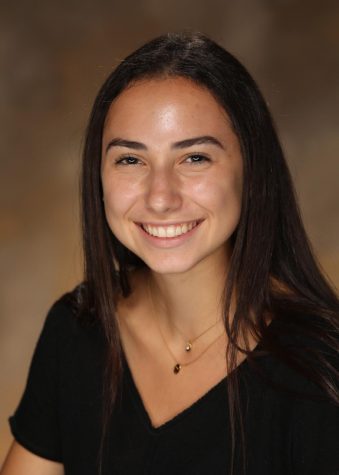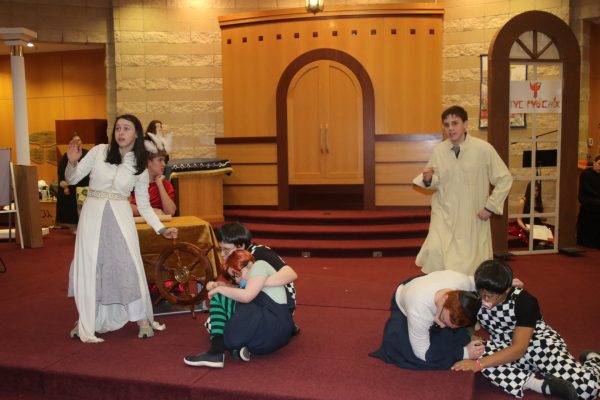Time to talk stocks: Understanding the differences and similarities between the finance club and the investment club
Over the summer, junior Sam Goldberg thought to himself, “What if JDS had a finance club?”
A few months later, as students filed into the CESJDS club fair in September, they were greeted with not one, but two new financial clubs: the finance club and the investment club. Though seemingly similar at first glance, these two clubs actually focus on different aspects of investment and the stock market.
Both clubs were founded at the start of this year, and both are led by juniors: David Bisker, Ari Schlactus, Jonah Abrams and Sam Goldberg lead the finance club, and Ayelet Fishman and Emily Cohen lead the investment club.
Although both clubs initially seem similar, Dean of Students Roslyn Landy saw no issue establishing them both as separate clubs.
“We spoke about combining the two groups, but the leaders of each group convinced me not to since they would be focusing on different topics,” Landy said.
Both clubs incorporate a competition involving the investment of fake money in the stock market into their agenda. The finance club created a simulation where Goldberg set up a league for everyone in the club. Each member uses one million fake dollars to invest in the stock market and one million more fake dollars to borrow. They have to manage this money in the markets in whichever way they think will be most successful.
“This is a simulation that we use to have fun and have a little bit of competition between our club members,” Goldberg said.
The investment club, however, participates in a very different kind of competition. Theirs was founded by Ithaca College, and any club is eligible to enter. In this competition, each group of club members participates in a simulation in which they receive a million fake dollars to invest in stocks. Over the course of the competition, they track the success of their stocks, which translates to their success in the competition. The prize for having the most prosperous stocks is $3,000, to be divided amongst the winning team.
Although both clubs share a competitive aspect, the main difference between the two is their focus. The finance club is mostly centered on educating its members on how to apply investment knowledge in their daily lives, with a lesser focus on winning a competition, while the investment club’s primary focus is winning the Ithaca competition, with less of an emphasis on learning finance just for the sake of learning.
“We only focus on investments, versus the finance club [who] focuses on bonds and more long-term things,” Fishman said.
Her club watches educational videos on the stock market during each club meeting to help them plan their strategy for the competition.
Every time the club meets, the leaders teach a different lesson on finance to their members. Each club leader is in charge of the particular area of finance that they are most familiar with or have previous knowledge of.
“In general, our mission is to educate people about finance because in this school it’s kind of overlooked,” Bisker said. “Although it’s very important for life, it’s not only finance that we do: it’s money management, retail investment and college loans. We try to foresee every money obstacle that people face in their lives.”
When Bisker leads the club discussion, he specializes in teaching about how to read global market analysis.
Despite their similarities, all the leaders from both clubs see the value in keeping their clubs separate.
“[It’s] a responsibility of the school to teach people how to manage their finances and be on top of what they’re doing in life,” Bisker said.
This story was featured in the Volume 36, Issue 3 edition of The Lion’s Tale, published on Dec. 20, 2018.











